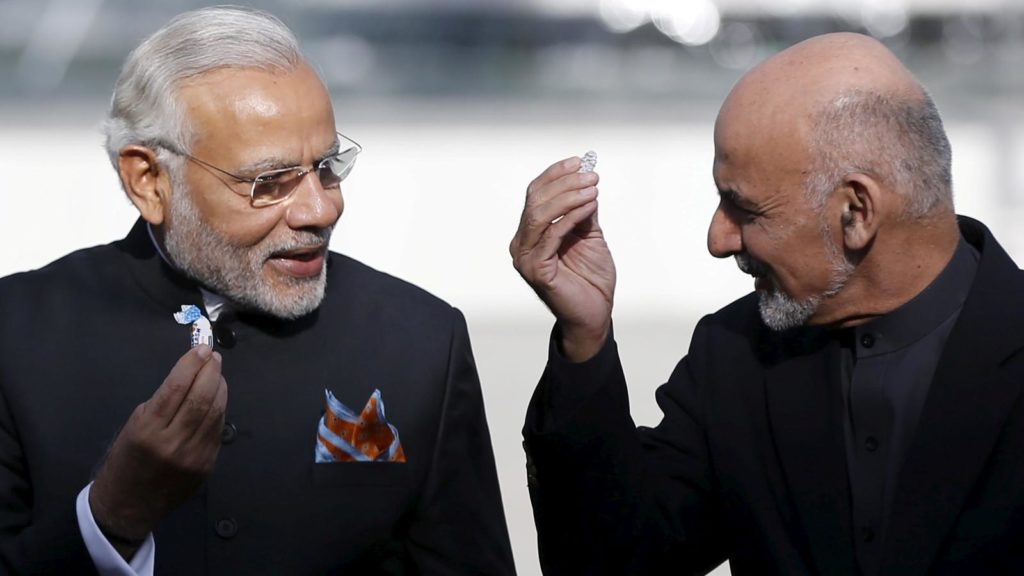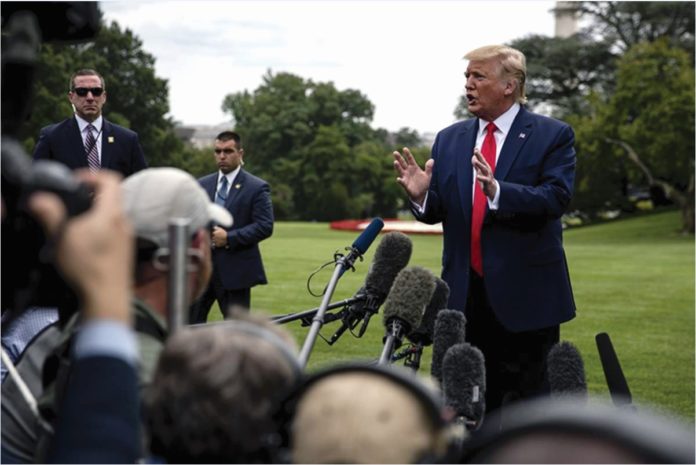A day before the planned Sunday secret negotiations between President Trump, President Ghani and representatives of the Taliban at Camp David, it was cancelled. The meeting was meant to eliminate the disagreements that the Afghan president and parts of the US leadership had with the draft peace agreement, the result of almost a year’s negotiations between US special envoy Khalilzad and the Taliban in Doha. Despite a lack of consensus between the US National Security Council, the State Department and the Pentagon, the talks had gone on. This was because of the strong wish of President Trump to live up to his promise to get out from Afghanistan, after almost twenty years of war his strong desire had been overriding all qualms and resistance among the various elements of govt involved. After each of the nine rounds of negotiations between Khalilzad and the Taliban, the US Govt was consulted for a go ahead.
Facing elections next year Trump was trying to push through an agreement with the Taliban that would allow him to withdraw all or a maximum of American troops. It was Trump’s initiative alone, his NATO allies, the Afghan government or India a new close ally were never part of the negotiations but were kept informed about the progress. When President Ghani was shown the latest draft of a possible peace agreement, even he was not allowed to keep a copy of it! There has been disillusionment among those left out from the decision making process no doubt. Germany that has a couple of hundred police men and soldiers only in Afghanistan has decided to stop all projects in Afghanistan and bring a maximum of Germans home citing security threats while the rest is holed up in seemingly secure places in North Afghanistan. Other NATO members might follow suit.
To strengthen their political position in the negotiations the Taliban have heightened pressure on the Afghan government installations by a series of attacks that cost the lives of dozens of Afghans and some foreigners as well. Due to this pressure they were able to get many of their demands conceded in the draft peace document so that peace seemed imminent. With the peace deal in jeopardy they may have overplayed their hand with those latest attacks.
The temporary winners seem to be those forces that have thought peace undesirable and the efforts to reach a deal as deplorable. After Mr. Ghani and his government the main such power is India. With all its hatred for Pakistan India has been using Afghanistan and Afghan soil during the last couple of decades to build a ‘second front’ against Pakistan so as to force us to fight a two-front war when the time comes. That strategic trick has been rather easy to deploy given the long-standing anti-Pakistan feelings prevalent in Afghanistan because of their refusal to recognize the Durrand line, Pakistan’s western border with Afghanistan. For many years now India has shown friendship and support to Afghanistan by keeping a huge diplomatic contingent in the country and pursuing different projects in the infrastructure sector. They were able to leave a footprint in Afghanistan during Russian occupation in the 1980s employing their close relationship with the Soviets. It came handy that Soviet Union was ready to sacrifice their soldiers and assets that enabled India’s influence. After the Russian withdrawal and the civil war in Afghanistan they could only deplore Pakistan’s growing influence in the neighbouring country due to their good relations and support to the Taliban government. The latest era of success came for India when Pakistan in October 2001 in a U-turn dropped its support for the Taliban and sided with the US. Now the US and its NATO allies were fighting and sacrificing their lives and assets while India reaped the fruit. India has never had any direct military presence in Afghanistan, but the Indian military has been deeply involved in the development of an Afghan national army, a police force and above all the national intelligence service which they virtually run. For all practical purposes, Afghanistan’s National Directorate of Security Intelligence (NDSI) is an outpost of RAW. No wonder Amrullah Saleh, Ghani’s Presidential running mate and the former Head of NDSI is the “Indian” candidate. Thousands of Indian nationals in Afghanistan are working in reconstruction companies, international aid agencies or are Indian government employees working at the consulates and embassies thus widening India’s footprint. All four of India’s consulates are bases for espionage and for funnelling aid to separatist rebels in the Pakistani province of Baluchistan.

A potentially potent means of Indian influence is education. More than 1,000 Afghan students go to India every year on scholarships provided by the Indian government; Writers and artists benefit from the India-Afghanistan Foundation, a cultural and academic exchange program that gives small grants. This and other educational programs help India cultivate ties with the elite of every Afghan ethnic group and with India. Apart from scholarships Afghan public servants were granted access to government training institutions in India for periods ranging from days to six months. The success of this method is visible: According to the ‘Foreign Policy’ journal, which analysed perceptions about India especially among Pashtuns from Kabul to Kandahar, “the widespread support in the Pashtun heartland for an even greater Indian role in rebuilding the Afghan economy and society” is “striking”.
When US peace negotiations started in earnest India had to ponder what would be their fate if a peace was negotiated that included a sizeable section of the Taliban into future Afghan governments. So far India had not had any contacts to the Taliban and those would not have liked to talk to Indians either. India’s urgent search for options so far has been that it seeks dialogue with ethnic Pashtuns, the Taliban’s base. Some analysts interpret this shift as opening the door to changing India’s long-standing policy of refusing to deal with the Taliban. The London Conference in January 2010, in which the US and NATO resolved to include the Taliban in any political solution forced India’s hand in the matter. The stalling of the US peace negotiations with the Taliban may be a temporary gain of time for India but it seems more to do with infighting with the US Administration between the US State Department, the National Security Council (NSC) and the Pentagon.
The leader of the die-hards against any deal was the Head John Belton. He opposed Pakistan in every issue under the sun but was kept in check by senior hands of the US diplomatic community. He was supported in his venom by Lisa Curtis who was selected by him for the NSC. He seems to have temporarily prevailed over Trump in postponing the talks but his resignation seems was the reaction from Trump who was looking forward to a deal, and must have woken up frustrated the next morning. How soon the deal will be put back in place will depend upon Trump getting his policy back on the rails but to India’s deep frustration, it will happen sooner rather than later.




